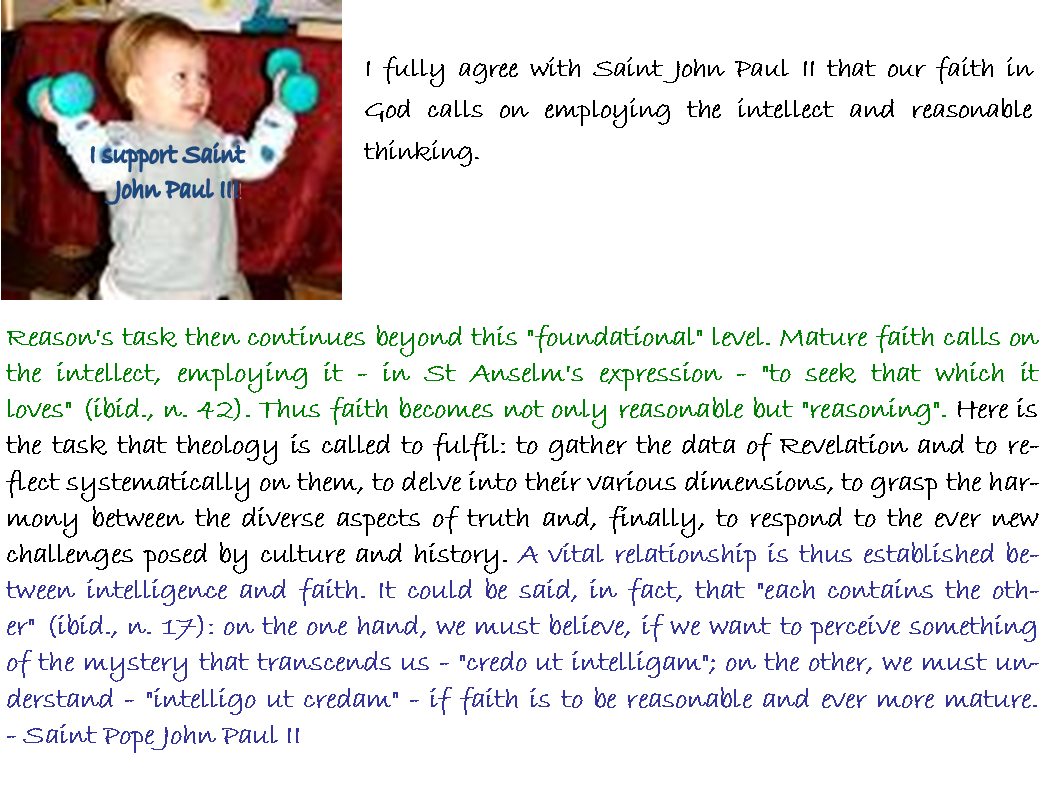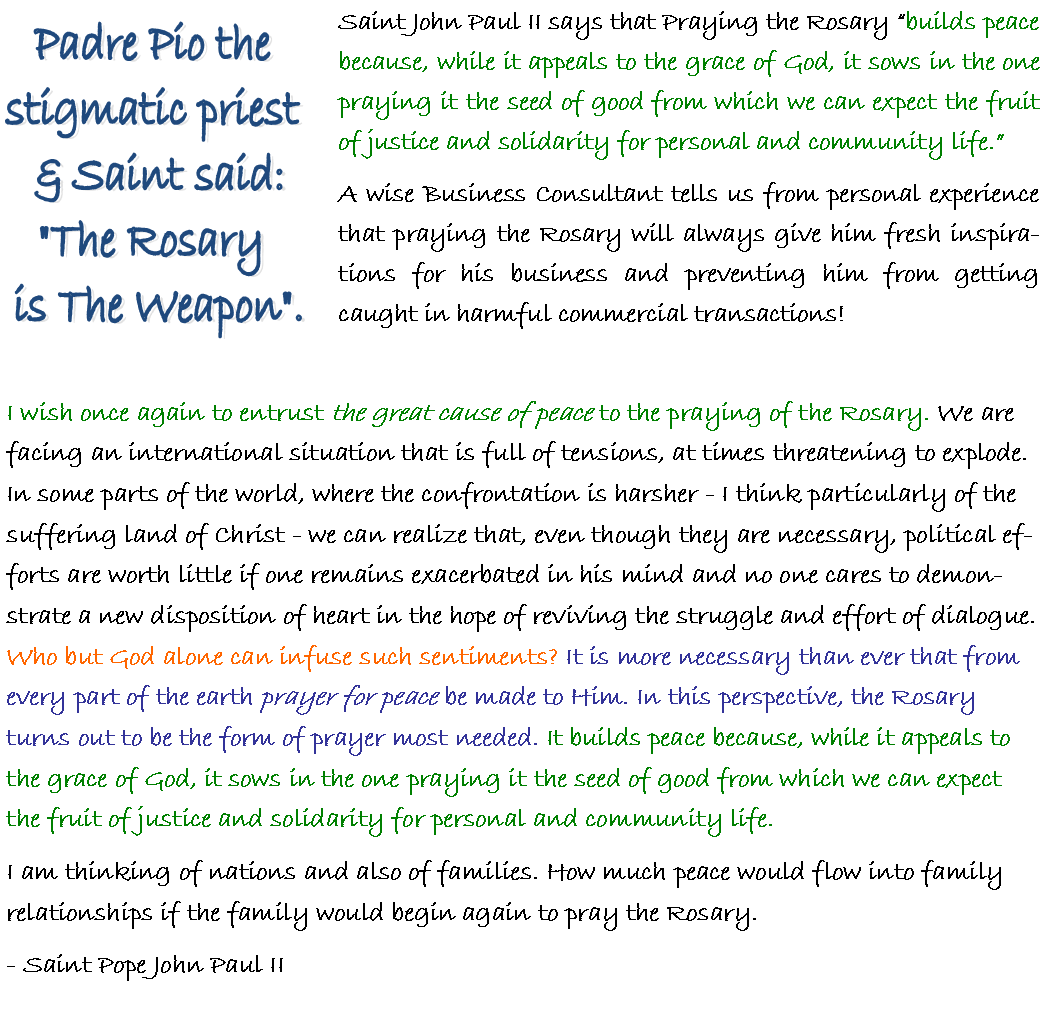|
256 |

|
Twenty-Sixth Sunday in Ordinary Time, Second Reading: Extracted from the letter of Saint Paul to the Philippians 2:1-11 If our life in Christ means anything to you, if love can persuade at all, or the Spirit that we have in common, or any tenderness and sympathy, then be united in your convictions and united in your love, with a common purpose and a common mind. That is the one thing which would make me completely happy. There must be no competition among you, no conceit; but everybody is to be self-effacing. Always consider the other person to be better than yourself, So that nobody thinks of his own interests first but everybody thinks of other people’s interests instead. In your minds you must be the same as Christ Jesus: His state was divine, yet he did not cling to his equality with God but emptied himself to assume the condition of a slave, and became as men are; and being as all men are, he was humbler yet, even to accepting death, death on a cross. But God raised him high and gave him the name which is above all other names so that all beings in the heavens, on earth and in the underworld, should bend the knee at the name of Jesus and that every tongue should acclaim Jesus Christ as Lord, to the glory of God the Father.
Gospel Acclamation John 14:23 Alleluia, alleluia! If anyone loves me he will keep my word, and my Father will love him, and we shall come to him. Alleluia! Or John 10:27 Alleluia, alleluia! The sheep that belong to me listen to my voice, says the Lord, I know them and they follow me. Alleluia! |
|
Twenty-Sixth Sunday in Ordinary Time, Gospel Reading: Extracted from the holy Gospel according to Matthew 21:28-32 Jesus said to the chief priests and elders of the people, ‘What is your opinion? A man had two sons. He went and said to the first, “My boy, you go and work in the vineyard today.” He answered, “I will not go,” but afterwards thought better of it and went. The man then went and said the same thing to the second who answered, “Certainly, sir,” but did not go. Which of the two did the father’s will?’ ‘The first’ they said. Jesus said to them, ‘I tell you solemnly, tax collectors and prostitutes are making their way into the kingdom of God before you. For John came to you, a pattern of true righteousness, but you did not believe him, and yet the tax collectors and prostitutes did. Even after seeing that, you refused to think better of it and believe in him.’ Sharing: It was the 26th Sunday in Ordinary Time on 28 September 2014.
The Readings that were read in the Eucharistic Celebrations all over the world on that day are shown in the previous page and above: First Reading: Ezekiel 18:25-28, Responsorial: Psalm 25:4-9, Second Reading: Philippians 2:1-11 & Gospel Reading: Matthew 21:28-32.
We have extracted the Homilies of Saint Pope John Paul II, Pope Benedict XVI & Pope Francis I based on the aforesaid Readings to share with you, so that you could similarly be encouraged: |

|
JOHN PAUL II ANGELUS Sunday, 26 September, 1999
Faith and reason have vital relationship
Dear Brothers and Sisters!
1. Returning to our reflection on the Encyclical Fides et ratio, today I would like to consider the role that reason plays in the journey of faith. Reason is involved in it in various ways. It is already present as the assent of faith matures, since the latter, although based on the "authority of God who reveals" (First Vatican Council, Dei Filius, DS 3008), develops in a profoundly rational way by discerning the "signs" of God that he himself has offered in salvation history (cf. Encyclical Fides et ratio, n. 12). Obviously, it is not a question of "proofs" as understood in experimental science. The signs of God are found instead "within the context of interpersonal communication" (ibid., n. 13) and, according to the logic of the latter, not only appeal to reason, but also call for a deep existential involvement. On this condition, and accompanied by the interior support of grace, they become clear signals, "signposts of the Spirit" as it were, pointing to God's presence and prompting man to abandon himself to him with complete trust.
2. Reason's task then continues beyond this "foundational" level. Mature faith calls on the intellect, employing it - in St Anselm's expression - "to seek that which it loves" (ibid., n. 42). Thus faith becomes not only reasonable but "reasoning". Here is the task that theology is called to fulfil: to gather the data of Revelation and to reflect systematically on them, to delve into their various dimensions, to grasp the harmony between the diverse aspects of truth and, finally, to respond to the ever new challenges posed by culture and history. A vital relationship is thus established between intelligence and faith. It could be said, in fact, that "each contains the other" (ibid., n. 17): on the one hand, we must believe, if we want to perceive something of the mystery that transcends us - "credo ut intelligam"; on the other, we must understand - "intelligo ut credam" - if faith is to be reasonable and ever more mature.
3. Today in a special way we wish to entrust theologians to the Blessed Virgin; theirs is the very important task of research and teaching in accordance with the demands of an adult faith. May Mary, "Seat of Wisdom", help them to carry out their "ministry" with the intellectual and spiritual commitment that it requires, in absolute docility to the Holy Spirit.
After praying the Angelus and imparting his Blessing, the Holy Father addressed the pilgrims in various languages, with a special word for the faithful of Albano, to whom he said:
Today I am particularly happy at the presence of many faithful from the Diocese of Albano! With great affection I greet Bishop Dante Bernini and express to him my sincere appreciation and deep gratitude for his pastoral ministry. For almost 18 years he has led this particular Church, to which Castel Gandolfo also belongs and whose titular is dear Cardinal Angelo Sodano, my Secretary of State. I extend my greetings to Auxiliary Bishop Paolo Gillet, to the priests here, to the consecrated persons and to all the lay faithful. Seeing you gathered here, I think of your journey in recent years, especially the Diocesan Synod, which is bearing fruit. I am also delighted with your generous willingness to welcome pilgrims during the now imminent Great Jubilee. I invoke every blessing, dear friends, upon all of you, your parish communities and your families, especially the children and the elderly. And I ask you to pray for me as I prepare to leave Castel Gandolfo to return to the Vatican.
Thank you again for your visit! |
|
JOHN PAUL II ANGELUS Castel Gandolfo
Dear Brothers and Sisters,
1. We are already on the threshold of the month of October, which, with the liturgical memorial of Our Lady of the Rosary, inspires us to rediscover this traditional prayer, so simple yet so profound. The Rosary is a way of contemplating the face of Christ seeing him - we may say - with the eyes of Mary. For this reason, it is a prayer that drawing upon the core of the Gospel is in full accord with the inspiration of the Second Vatican Council and very much in keeping with the direction I gave in the Apostolic Letter Novo Millennio ineunte: the Church has to launch out "into the deep" in the new millennium beginning with the contemplation of the face of Christ.
I am thinking of nations and also of families. How much peace would flow into family relationships if the family would begin again to pray the Rosary.
John Paul II greeted the pilgrims in French, English, German, Spanish, Portuguese, Polish and Italian.
To the English-speaking
3. I extend a warm greeting to the English-speaking pilgrims and visitors, and invite you to make the month of October a time of special attention to the recitation of the Rosary, the great prayer of intercession to Mary. Upon you and your families I invoke the joy and peace of the Lord.
Dear Friends, this is the last Angelus of the vacation period. With affection, I greet once again the townsfolk of Castel Gandolfo: Goodbye until next year. Next Sunday, 6 October, God willing, we shall be in St Peter's Square.
Acknowledgment: We thank the Vatican Publisher for allowing us to publish the Homilies of Saint Pope John Paul II, so that they could be accessed by more people all over the world; as a source of God’s encouragements to all of us.
19 October 2014 |

